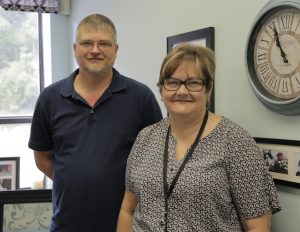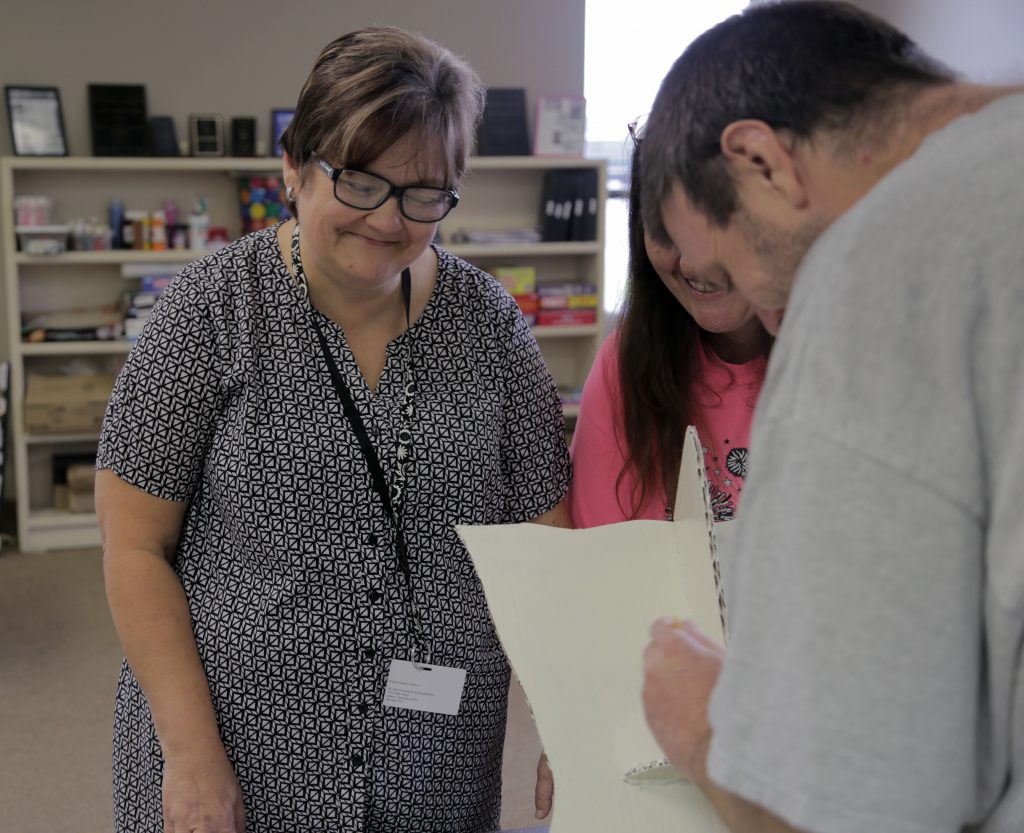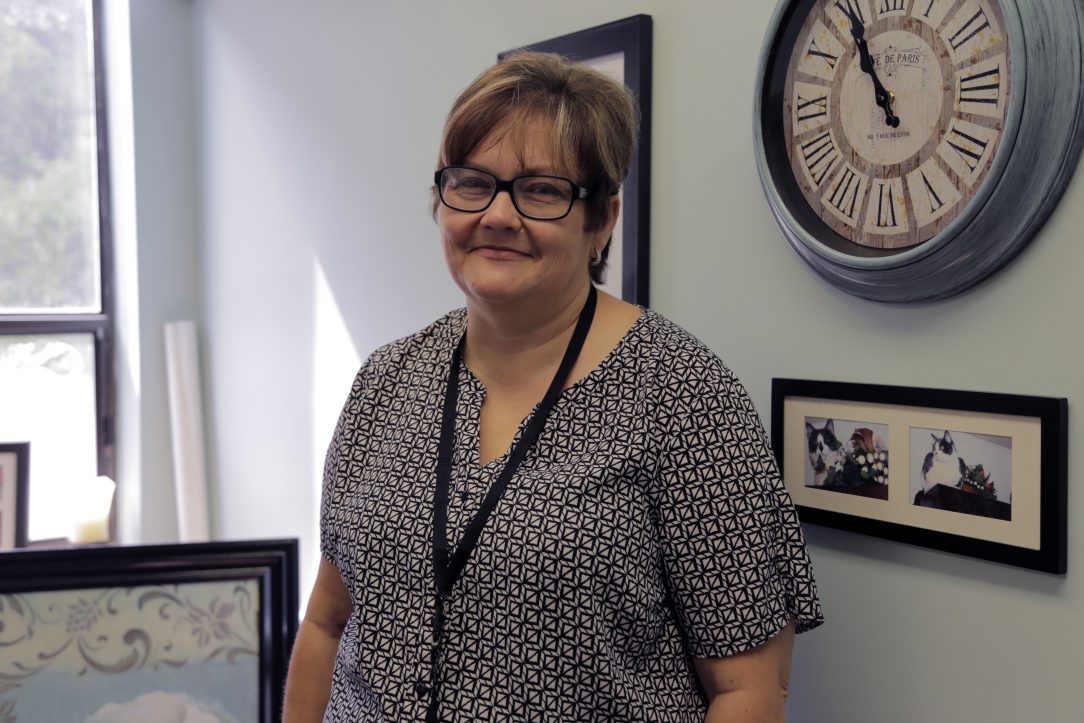Through KRCC’s Supported Employment program, Charlene Neace got a job and began reclaiming her life.
by Mindy Miller, KRCC Multimedia Writer
After 24 years of marriage, Charlene Neace’s life seemed full and complete, but at 42, everything changed and she found herself divorced, unemployed, and living in emergency housing. And, on top of that, she’d been introduced to a new crowd of “friends” that sent her on a dark journey through drug use and multiple hospitalizations.
During this time, she’d made her way to Kentucky River Community Care (KRCC) and was diagnosed with depression, bipolar disorder, and severe anxiety. For years, she struggled to put her life back together, spending much of that time in bed and isolated from those around her.
But, at 47, Neace has achieved what many others with mental illness have trouble finding – a job. For over a year, she has worked as a peer support specialist at KRCC’s Perry County Health & Wellness Center in Hazard. Not only was it difficult to find a suitable job in the depressed economy of eastern Kentucky, but it was also hard considering that nearly 84 percent of Kentuckians receiving public mental health services are unemployed, according to a 2014 study by the National Alliance on Mental Illness (NAMI).
“(This job) has kept me out of the hospital, and it’s kept me on the straight and narrow,” said Neace, who smiles broadly when referring to herwork. “Sometimes, I’ll have a little pity party for myself, but then, I’ll look around here and see that there are people in a worse shape than I’m in. When those doors open and the clients come in, all that’s gone.”
Neace is one of many people with mental illness who has found much needed assistance through KRCC’s supported employment program, which is offered through the Office of Vocational Rehab at LKLP’s Career Center, according to John Lee Hall, a supported employment specialist at KRCC who offers direct support to Neace on a daily basis.
“That’s part of supported employment – if they want long-term support, we give it to them,” Hall explained, adding that Neace requested to remain on his caseload, after having spent a full year in the program.
“There’s not a lazy bone in Charlene,” he said. “The clients love her, and she’s dedicated.”
Though Neace works part-time, Hall said she comes in early and doesn’t leave until the last client has left the facility for the day.
“Sometimes, our clients are hesitant to join in and engage with others, but she gets them to take part,” Hall noted.
That’s because Neace has a strong connection with the clients, one that most licensed therapists simply do not have – she can relate to their life’scircumstances, she said.
All of the clients at the Health & Wellness Center have been diagnosed with a severe mental illness (SMI), and since she understands that experience and still battles her own mental illness each day, Neace said she has developed a level of trust with the clients that few others possess.
“They seem to always want to be around me,” she said. “If I come in and I don’t feel good, they’ll know I don’t. You know, that’s therapy for me, too. They help me a lot, so we’re all helping each other.”
And it’s a job Neace never anticipated having.

Charlene with her Supported Employment colleague, John Lee Hall
When she’d first entered the supported employment program, she had no income and was living off of a voucher from the Homeless & Housing Coalition of Kentucky.
“I’d followed the guidelines – I was clean and had stayed out of the hospital,” she said. “That’s when my counselor asked me what I thought about getting a job. I told her I was fine with it, as long as it was a job my nerves could handle.”
When the peer support specialist position became available, Neace said her counselor thought it would be perfect for her.
“They don’t try to place you just anywhere,” Neace said. “They try to find you a job that’s suitable for you and where you’ll be successful.”
Neace has thrived in her new role, Hall said, spending hours talking to clients about their problems, helping them understand their medicines, going with them to doctor’s appointments and on shopping trips, and even making sure they participate in daily activities.
“She brings stuff every week that she’s bought – bingo prizes and special rewards,” Hall said, gesturing to an office half full of items from local stores.”It’s just something I wanted to do for them,” Neace said.
“This was the right place for me,” she continued. “When I was depressed, I didn’t care about my personal appearance. Now, I do. I still have bad days, but I make myself get up and come to work, because I know that once I get here, it’s going to be better.”
“I’m thankful every day for this job. Without it, I don’t know where I’d be,” she said.

Neace’s supervisor, Maria Slone, agrees, noting Neace’s passion for her job.
“She’s grown as a person and as a professional and continues to strive in being a great peer support to her clients every day,” Slone said.
Neace has a message for others dealing with mental illness in the community.
“There’s a purpose for everybody in life. Everybody gets down, but you don’t have to stay down,” she said. “It’s hard, but if you can find good support, you can find a job, choose different friends, and pull yourself back up.”
For more information about KRCC’s Supported Employment Program, click here.

